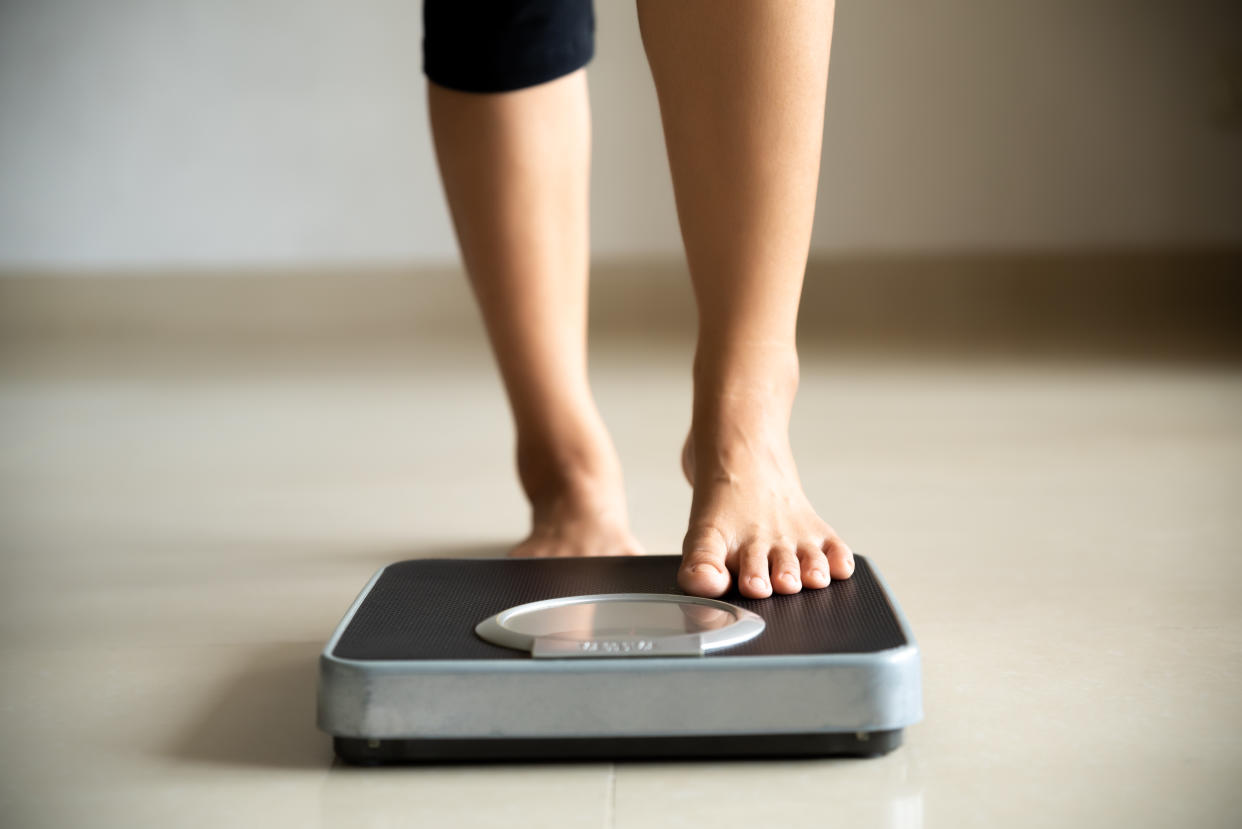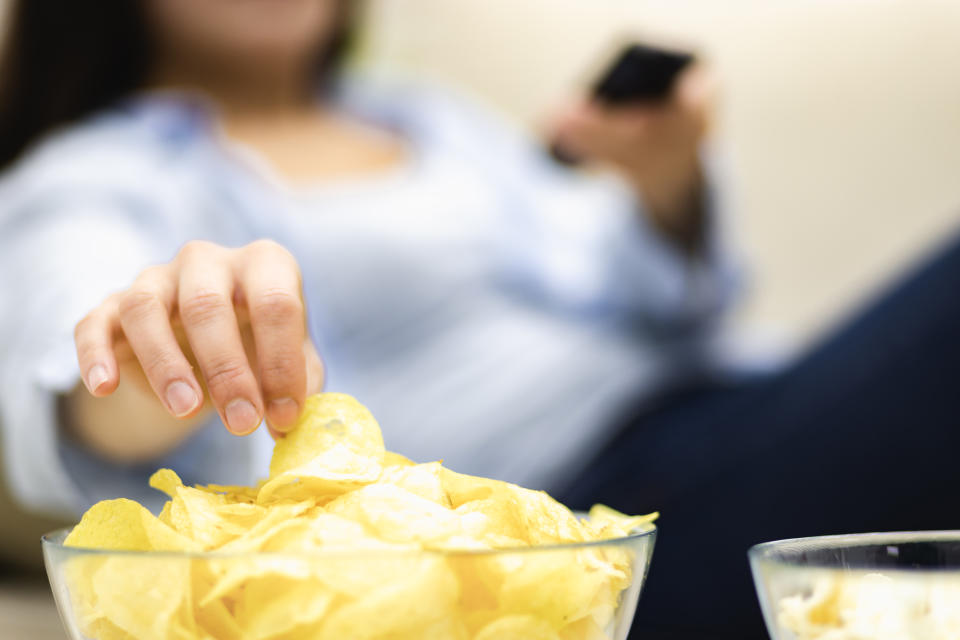Comfort-eating meant more than half of adults struggled to maintain weight during lockdown

More than half of UK adults struggled to maintain their weight during lockdown, research suggests.
Boris Johnson has vowed to crack down on obesity, blaming his “way overweight” frame for landing him in intensive care with the coronavirus in April.
In July the prime minister announced plans to ban junk food adverts pre-watershed and end “buy one, get one free” promotions on fatty products.
Research suggests this could not have come at a better time, as a survey of more than 800 British adults revealed that over half snacked more, exercised less and comfort-ate during the “stay at home” restriction.
Read more: Reversing childhood obesity to 1980s level could save the NHS £66bn
“Lockdown inevitably had an effect on our choices around food, drink and activity,” said lead author Dr Sarah-Elizabeth Bennett.
“Given that excess weight is associated with a higher risk of severe illness from COVID-19, and with lots of people coming out of lockdown feeling concerned about their weight and health, the findings of the study show behaviour change support is more important now than ever.”
In England, 67% of men and 60% of women are overweight or obese.
Obesity was identified as a risk factor for coronavirus complications early in the outbreak, while many Britons have complained of weight gain during lockdown.

‘No interest in healthy eating’ during lockdown
To better understand the extent of the problem, medics looked at 222 members of Slimming World, as well as 637 adults from the general population, between 9 April and 16 May.
Results – presented at the virtual European and International Congress on Obesity – revealed that more than half of the general population (65%) and Slimming World members (59%) found managing their weight since lockdown “very” or “somewhat” difficult.
Despite buying food being a valid reason to leave the house during the height of the restriction, many reportedly found it tricky to purchase healthy options.
Read more: Europeans spending more time sat down 'due to streaming'
Some said there “wasn’t very much in the shops” or that “finding fresh fruit and vegetables was difficult”.
Boredom and simply spending more time at home led to many reaching for snacks, the results suggest.
Exercise was another valid reason to leave the house during lockdown, but gyms were closed in England until 25 July.
A newfound sedentary lifestyle therefore also contributed to the participants’ weight gain, according to the medics.
The stress and anxiety of the pandemic also prompted many people to comfort-eat.
Read more: Patients prescribed walks in the great outdoors on the NHS
More than two in five (42%) of the Slimming World members and over a third (34%) of the general population reported eating more sugary foods during lockdown.
Over a quarter (27%) of the members and just under one in five (18%) of the general population also claimed to reach for fatty options.
With the coronavirus dominating headlines during the height of the outbreak, some said they “had no interest in anything else, including healthy eating”.
Not all of the participants struggled with their weight, however. Some benefitted from the time to meal plan and prepare food from scratch.
One enjoyed “taking bike rides with their son”, while others felt more “in control of their food intake” while restaurants were closed.
Perhaps surprisingly, the Slimming World members reported less of a negative impact on their overall health as a result of lockdown, with just 14% complaining of a decline in wellbeing compared to 22% of the general population.
Slimming World, which launched virtual groups during lockdown, is gradually reopening its in-person get-togethers.
It is a partner of Public Health England’s newly unveiled Better Health initiative, which is encouraging millions to kickstart their health.
Alcohol intake rose more among the Slimming World members, however, with over a quarter (28%) upping their consumption, compared to 16% of the general population.
Their increased alcohol intake was still within the government’s maximum 14 units a week guideline, however.
The medics behind the survey noted its relatively small sample size, as well as self-reported data that could be prone to bias.
Their research comes as a team from the Obesity Action Coalition Florida found “fat shaming” is less common in the US than the UK.
In the US, one in four (25%) believe obesity is the fault of the individual, down from nearly one in three (31%) in 2017.
There has been little change among Britons’ attitudes however, with around one in three blaming the individual for their size in 2017 (34%) and 2020 (30%).



